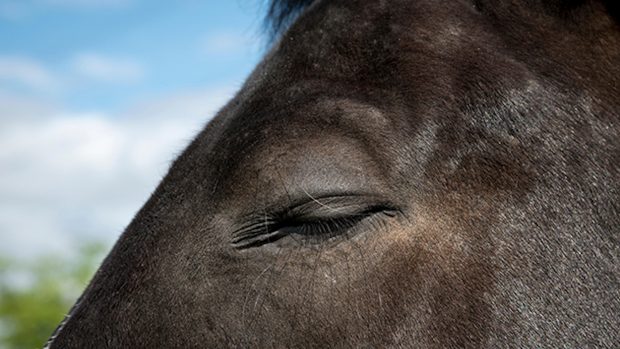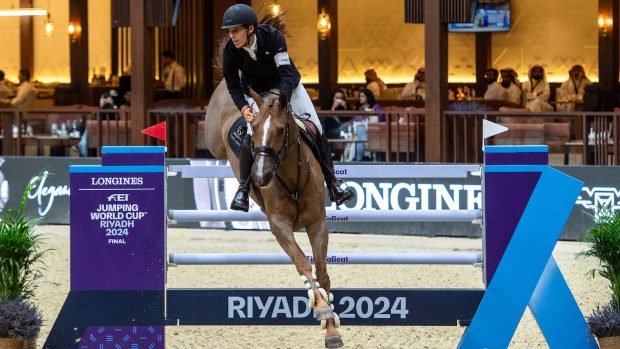The International Equestrian Federation (FEI) will radically alter its doping policy over the next 12 months as it adopts the new recommendations of the anti-doping task force.
The task force, which was chaired by Sven Holmberg and included British Equestrian Federation chairman Philip Billington among its members, presented its findings at the open forum during the federation’s general assembly in London last week.
The FEI accepted the recommendations — subject to refinement — and is expected to begin introducing them immediately, with a view to having the full system in place by next year.
Set up at the end of last year, the task force had been charged to look into modernising the existing medication control system and its report strives to clarify and streamline doping rules.
One of the biggest hurdles both competitors and the FEI came up against when dealing with banned substances was to establish the difference between a medication required to ensure horses’ welfare and drug abuse. Holmberg and his colleagues chose to make this thorny issue the starting point of their work.
“The basis of the task force’s recommendations is the protection of the integrity and cleanliness of the sport, whilst recognising that horses are competitive athletes who deserve the greatest care and whose welfare is paramount,” the FEI said in a statement.
As a result, the group suggested drawing up a list of acceptable drugs — the so-called Medicine Box — which will also detail withdrawal times before competitions and recommended levels of detection for each substance.
Clarity over the withdrawal times had been a long-standing request of riders and treating vets, but it had been hampered by debate over whether standard periods were meaningful when “the rate at which a drug deteriorates varies considerably from one horse to another.” The task force accepted that this indicator is far from perfect, but nevertheless recommended setting it up within a year.
However, establishing acceptable drug concentration levels and withdrawal times is a complex issue, which the task force believes would be best addressed by a panel of experts. It therefore suggested assigning the work to a dedicated Medication Advisory Group, which should include vets and sport representatives.
Another crucial step in clarifying doping regulations lies in reclassing banned substances from five to three groups. The doping tier will include any performance-enhancing agent, including drugs “with no generally accepted medical use in competition horses and which are usually products prescribed for human use only” and substances used to sensitise limbs or body parts.
Sedatives, stimulants, painkillers and similar drugs, which can affect performance by “producing or modifying physiological or behavioural effects”, will fall into Medication Class A, while “substances which either have limited performance enhancing potential or to which horses may have been exposed, including certain dietary contaminants,” will fall into the less serious Medication Class B.
The second cornerstone of the task force’s suggestions lies in speeding up the judicial process for doping and medication cases. This comes as a welcome reaction to the lengthy Olympic doping verdicts, which took place up to seven months after the event. Deadlines for testing will be shortened and assigned to four laboratiories of choice: a central lab in Europe, one in the USA, one in Australia and the third in Hong Kong, which will all have to accommodate the recommended levels of detections set up by the Medical Advisory Group.
The judicial procedure will also change. Doping cases will all be heard by the FEI Judicial Committee, which will be composed of seven independent members rather than the three or four who make up current committees. Committee members will all have legal background and “should not have any interaction with FEI personnel that may influence their decision making.”
Doping offences will carry a steep suspension of up to two years — which may be reduced or removed under specific circumstances — plus disqualification from the event and a fine.
Medication Class A cases will be addressed through the FEI fast track system or through a Judicial Committee hearing. Offences will result in either suspension or in disqualification and a fine. However, if the case is referred to the Judical Committee, a suspension of up to a year can be imposed on top of the disqualification and fine.
Medication Class B cases will always be fast-tracked, unless they are repeat offences, and, if ascertained, will result in either a disqualification or a fine. Repeat offences will obviously carry harsher sanctions.
Until a case has been settled, rankings of any affected events will be frozen. However, full hearings must take place within 40 working days and, in an effort to improve communications, the FEI will publish a record of every open case on its website, with details of expected timings and steps of the procedure.
“The BEF believe the findings of the FEI anti doping and medication task force are a sensible way forward, moving towards a practical solution in line with the requirements of the IOC and the need to ensure a clean sport,” says BEF Executive Officer Helen Huggett.
Meanwhile, German rider Meredith Michaels-Beerbaum has been cleared of any wrongdoing in relation to an apparent finding of a metabolite of Acepromazine in a urine sample taken from her horse, Shutterfly, at last year’s FEI World Cup Final in Milan.
“The Judicial Committee accepted that certain procedural anomalies occurred that could be interpreted to affect [Michaels-Beerbaum’s] due process rights to verify the applicable procedures and results. These included particularly a limitation on the ability of [Michaels-Beerbaum] to witness the “B” sample analysis,” the FEI wrote in a statement.
“The Judicial Committee acknowledged the parties’ joint acceptance that there was no deliberate attempt by [Michaels-Beerbaum] to affect the performance of her horse.” As a result, the German rider was fully exonerated from any apparent breach of rule.




